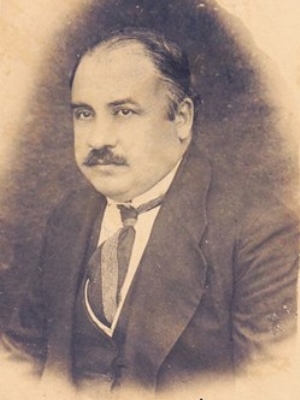
Biographies
Abd al-Aziz, Shah (d. 1824)
Indian Islamic scholar
Indian Islamic scholar and son of Shah Wali Allah (d. 1762), the foremost alim (also anglicized as Aleem) is one of the names of Allah in Islam, meaning “All-Knowing.”) of eighteenth-century India. Prolific author of a wide range of works. Known primarily for his epistles refuting Shi’ism, the most important and controversial of which is Tuhfah-i ithna ashariyah (1789 – 90).
In northern India, ῾Abd al‐῾Azīz was a prominent Ṣūfī ῾ālim of his time, a powerful orator (khaṭīb), an effective preacher (wā῾iẓ), and an expert on ḥadīth and the Qur’ān. He left a deep imprint on Islamic learning through his writings and through the students who came to the Madrasah‐i Raḥīmīyah from all over India. He was also a connoisseur of Indian vocal music and Urdu and Persian literature as well as an accomplished calligrapher and horseman.
At the age of sixteen, following the death of his father, Shāh Walī Allāh (d. 1762), the foremost ῾ālim of eighteenth‐century India, Shāh ῾Abd al‐῾Azīz assumed responsibility for administering and teaching at the madrasah, which had been founded by his grandfather. Author of twenty‐two known works, ῾Abd al‐῾Azīz wrote on topics ranging from Islamic philosophy, ḥadīth, tafsīr, and the spirit of Sunnism to rhetoric, genealogy, music, and Persian literary styles. In the Qur’ānic studies, his Fatḥ al‐῾Azīz (translation and exegesis of the first two chapters and the last two parts of the Qur’ān in Persian, in three volumes) is a major contribution in its methodological framework and interpretation. He witnessed the disintegration of the social and political order, the transfer of political power into Shī῾ī hands (and the subsequent ascendancy of Shi’ism in northern India), and the British takeover of Delhi in 1803. Against this backdrop, his other two important Persian works Malfūẓāt‐i ῾Azīzī and Fatāwā‐i῾Azīzī, along with Fatḥ al‐῾Azīz, serve as comprehensive sources for religious and social reconstruction. They reflect the concerns of the Muslim community in a period of transition and expound his views on how to deal with such issues as the legal status of India under British rule, social intercourse with the British, the adoption of Western dress, learning English and joining the British service, interest on loans or deposits under British rule, the marriage of Muslim women with Christians, Shī῾ī‐Sunnī intermarriage, abortion, and the use of contraceptives.
῾Abd al‐῾Azīz’s major preoccupation, however, was to restore the superiority of Sunnism by refuting aspects of Shiism. Although he wrote several epistles on aspects of Shi’ism, his most comprehensive and controversial work was Tuḥfah‐i is̱nā’ ῾asharīyah, completed in 1789–1790. His concern with the “right religion” — explaining beliefs and rituals and correcting misconceptions of historical realities such as the caliphate of the first three caliphs — may be seen as an attempt to preserve the Sunnīs’ social identity in the changing sociopolitical order. ῾Abd al‐῾Azīz accepted Shi’ism as an important sect of Islam but rejected some Shī῾ī practices.
῾Abd al‐῾Azīz did not assume any title that might suggest that Allah had designated him for a specific role in the community. His contemporaries and posterity, however, bestowed upon him such titles as sirāj al‐Hind (lamp of India) and muḥaddith (expert on ḥadīth). Posterity acknowledged ῾Abd al‐῾Azīz’s erudition and placed him in the ranks of religious reformers (Sayyid Abū al‐A῾lā Mawdūdī, Tajdīd va iḥya’‐i dīn, Lahore, 1966, pp. 114–115). Among ῾Abd al‐῾Azīz’s writings, the Tuḥfah (also translated into Arabic and Urdu) should be singled out for its lasting impact. This work not only demonstrates his profound knowledge and understanding of authentic sources of the Shī῾ī and Sunnī law but also epitomizes the linear development of sectarian polemics written by Sunnī ῾ulamā’ in the seventeenth and eighteenth centuries. His contemporaries among the Shī῾ī ῾ulamā’ in the state of Awadh vehemently refuted each chapter of the Tuḥfah. In the wake of sectarian strife and polemical discussions in Pakistan in the early 1990s, the Sunnī ῾ulamā’ have often referred to the Tuḥfah as a source.
Shah Abd al-Aziz
405 – 001-c
https://discerning-Islam.org
Last Update: 02/2021




